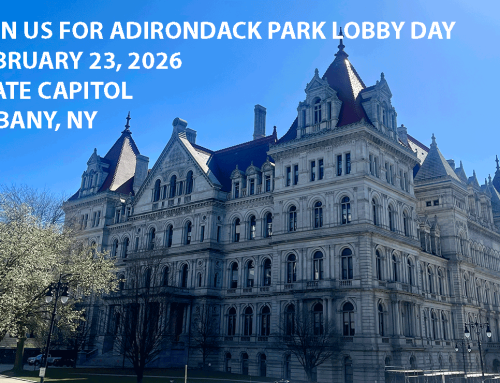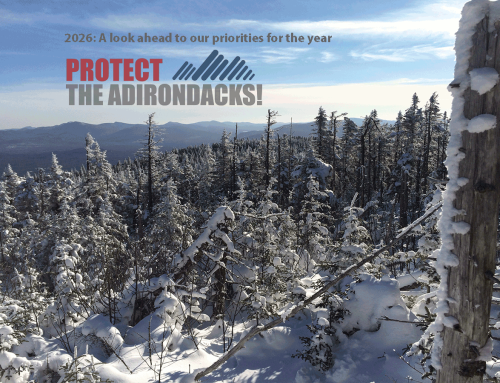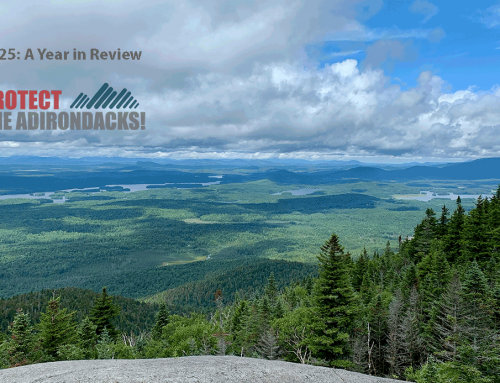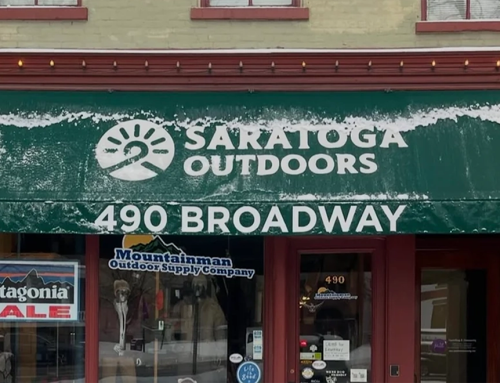PROTECT supports new DEC wetlands regulations and urges APA to adopt new wetlands regulations to comply with State law.
PROTECT submitted comments on new regulations proposed by the Department of Environmental Conservation (“DEC”) for implementing the amendments to the Freshwater Wetlands Act (“FWA”) that were signed into law in April 2022. PROTECT’s comment letter is available here. Thank you to those who also submitted comments to DEC in response to our action alert.
PROTECT strongly supported the 2022 amendments to the FWA, which provide much-needed additional protections to wetlands in New York State. When the FWA was originally passed in 1975, wetlands were already recognized as having critically important ecological functions and values, including habitat for fish and wildlife, protection of surface and groundwater resources, and erosion and flood control. Today, more severe flooding events resulting from climate change, new threats to groundwater resources posed by “forever chemicals” and other pollutants, and the continuing loss of biodiversity render the functions and values provided by wetlands even more critical. The amendments to the FWA recognize this fundamental ecological fact and provide additional protections by lowering the jurisdictional threshold for DEC permitting and providing protection for smaller wetlands of unusual importance, including, for the first time, vernal pools determined to be productive breeding habitat for amphibians. The amendments also improve and streamline DEC’s wetland regulatory process by eliminating the requirement that wetlands be mapped prior to DEC exercising its regulatory authority.
PROTECT’s comments strongly support DEC’s proposed regulations, while also noting that some provisions in the regulations should be modified. Specifically, PROTECT suggested that the regulations incorporate specific language in the FWA amendments that create a rebuttable presumption that areas meeting the definition of a freshwater wetland are subject to permit requirements. PROTECT also urged DEC to eliminate provisions in the regulations that provide broader exemption and applicability waivers than the FWA amendments provide to projects that are in the application process but have not yet received a wetland permit. As PROTECT’s comments point out, landowners and applicants have been on notice since April 2022 of the amendments to the FWA, and it is neither unfair nor onerous to require applicants who will have had nearly three years’ notice of the new provisions to become bound by them when they go into effect on January 1, 2025, regardless of where they are in the application process.
DEC’s proposed regulations set forth new criteria for determining whether a vernal pool or vernal pool complex is of “unusual importance” and thus subject to regulation under the FWA amendments. The criteria are based on the number of egg masses of specified amphibian species, with different species selected for each region of the State. PROTECT believes that the criteria are unduly restrictive and may result in productive vernal pools failing to be protected, so PROTECT suggested that DEC expand the criteria to include more amphibian species and to include a range of egg mass numbers rather than a single egg mass number.
PROTECT also urged DEC to allow any person, not just the current landowner as provided in the proposed regulations, to provide information to DEC about vernal pools that may be of unusual importance. PROTECT supported the proposed regulatory buffer for vernal pools of 800 feet, and recommended that it be supplemented by a requirement that 75% of the upland habitat around a vernal pool to a distance of 1,250 feet be protected, with an emphasis on protecting the highest quality habitat likely to sustain and support vernal pool-dependent amphibian populations.

Spotted salamanders need vernal pools that should be protected. Photo credit: Virginia Department of Conservation and Recreation.
PROTECT does not support the provision in the regulations specifying that wetlands in a designated critical environmental area (“CEA”) will be classified as being of unusual importance only if there is a specific reference to wetland protection in the written justification for the CEA designation. PROTECT believes the regulatory provision should be changed to include all CEA wetlands as being of unusual importance.
At the public hearings on the proposed wetland regulations, some developers claimed that the new wetland regulations will impede the development of housing, including affordable housing. PROTECT’s comments recognize the critical need for the development of workforce and affordable housing and takes issue with the claim that reasonable regulatory protections for wetlands are incompatible with that objective. PROTECT cited studies showing that homes constructed in or next to wetlands experience flooding and structural failures, and noted that new housing sited in an environmentally responsible manner will protect the personal safety and property of new homeowners and lessors as well as the long-term viability and success of new housing developments. PROTECT does not believe that housing for our workforce and for people who are economically disadvantaged should be built in wetlands where homes would experience shifting slabs, flooding, damp basements, mold, clogged storm drains and erosion.
The Adirondack Park Agency (“APA”) is responsible for administering and enforcing the FWA within the boundaries of the Adirondack Park. Although the FWA amendments clarify and expand APA’s jurisdiction over wetlands in the Adirondack Park and the extent to which those wetlands are protected, APA has taken no action to update its wetland regulations to implement the new statutory provisions. PROTECT and several other environmental organizations recently submitted a joint letter urging APA to expeditiously update its wetland regulations to implement the important FWA amendments. The letter requested that APA inform the public of its schedule for developing the necessary regulatory amendments and for providing the public with an opportunity to comment on the proposed regulatory changes. A copy of the joint letter is available here. To date, we have not received a response from APA.







